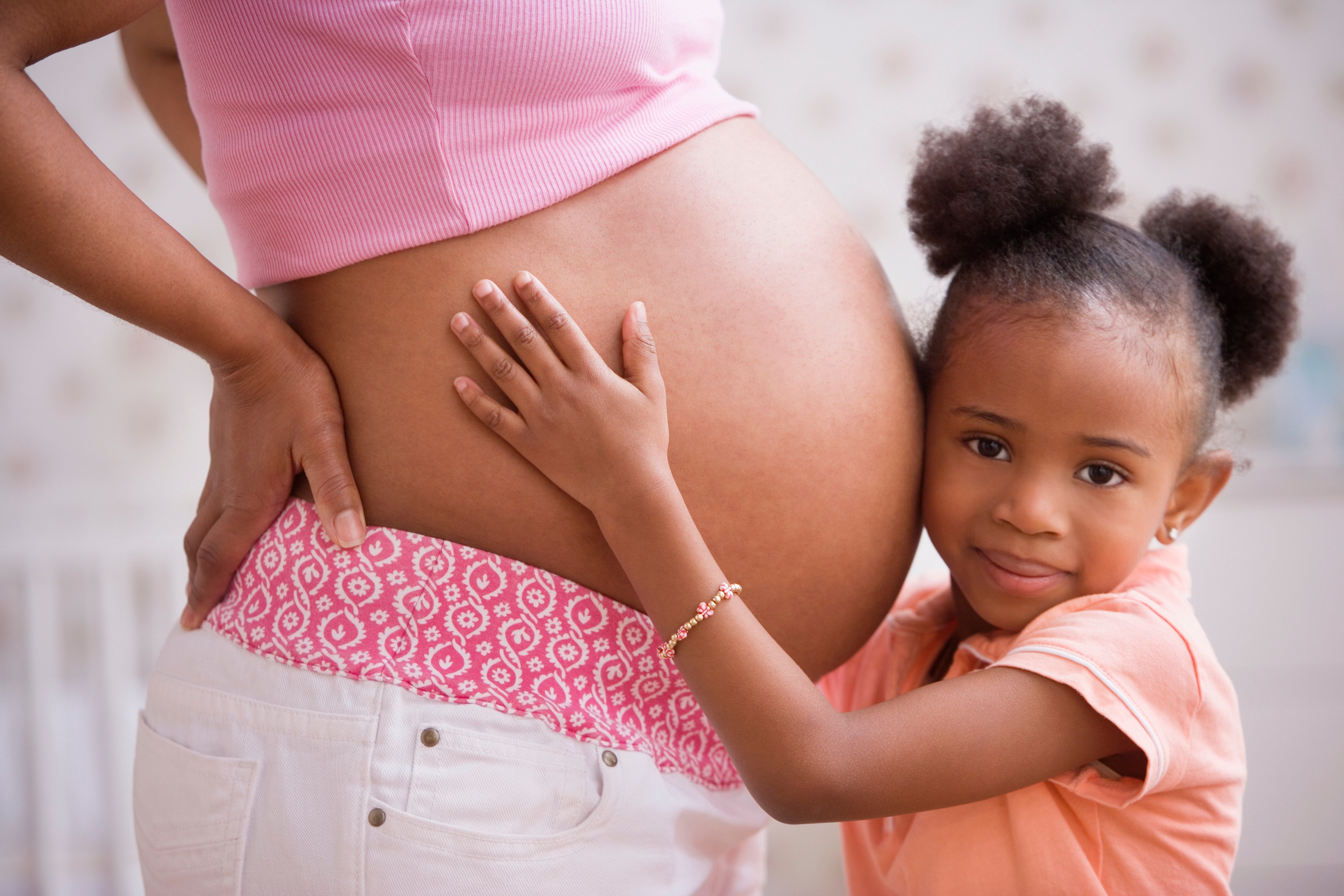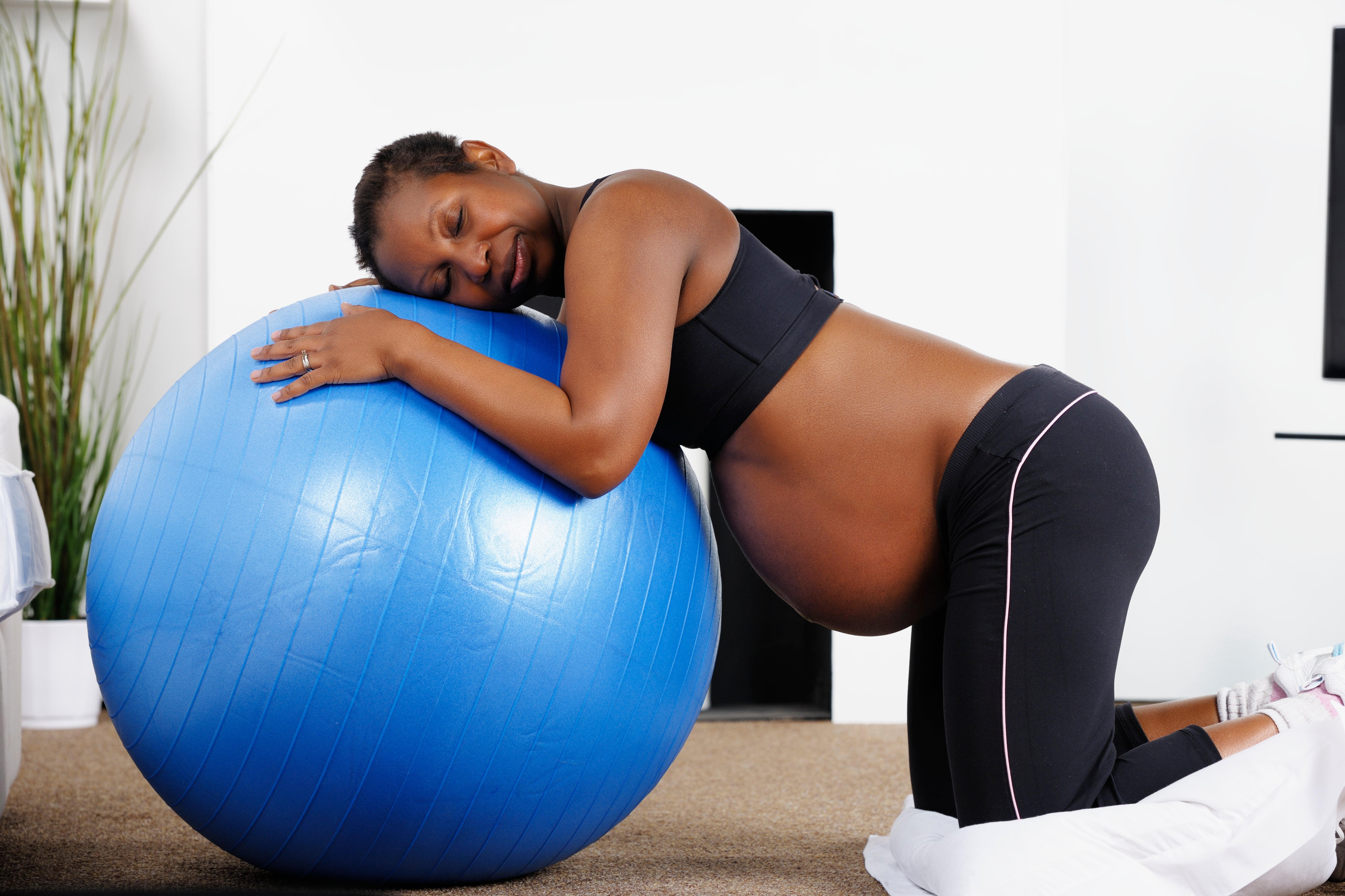Everyone from researchers to congressional Representatives has gotten the memo about the positive impact a doula can have on a pregnant woman’s life. Studies have shown that these partners in pregnancy who provide advice, information and support to mothers-to-be or new moms can help decrease the amount of time you spend in labor, lessen the chance that you’ll need a C-section and more. In fact, the health benefits are so bountiful that, just this spring, Representative Gwen Moore (D-Wisconsin) introduced the Mamas First Act in Congress. The bill would require state Medicaid programs to cover doula services for prenatal, delivery and postpartum services all across the country.
At this point, the question isn’t whether or not you should work with a doula—it’s what type of doula would be best for you. The category “full spectrum doulas” encompasses the range of services doulas might provide. Think of it as anything a woman’s womb might go through. “That’s the beauty of how this industry has grown,” explains Ravae S.M. Sinclair, JD, President of DONA International, an industry-leading organization which educates and certifies birth, postpartum and community-based doulas. She notes that some doulas focus on helping women deal with fertility problems while others work with women terminating their pregnancies. “After getting a foundational training as a birth or postpartum doula, many doulas go on to find their niche and receive additional training in a specialization.”
Sinclair encourages women to talk to several doulas before making their final decision. “Ask lots of questions to make sure you two are a good fit,” says Sinclair, who has 17 years of experience as a doula. Here’s a look at a few of types of doulas to consider.
Fertility: When you’re trying to get pregnant
Sex Ed class made it seem like getting pregnant was oh-so-easy, but for many women it’s a struggle. Fertility doulas can step in to assist you on your journey towards pregnancy, offering education on nutrition, pre-conception health and wellness, support with the emotional heartbreak of a miscarriage, genetic considerations and more. Organizations, including the American Pregnancy Association and the Prenatal Institute, offer certification training in this specialization.

Birth and Labor: When you welcome help with your pregnancy journey
These practitioners are what we typically think of when someone mentions working with a doula. They can do everything from answering questions you have about what’s going on with your body to practicing breathing techniques with you to advocating for your needs once you’re admitted to the hospital.
One big role they offer is emotional support. “Relationships change and family dynamics shift, but as a doula, I’m there regardless of what’s going on,” says Symone New, a full spectrum doula who works with The Doula Project in New York City. “I’m a consistent resource and nonjudgmental source of support for my clients and that’s really powerful.”
Some birth and labor doulas like to focus on specific populations that might need extra support and advocacy like pregnant women who are planning to give their baby up for adoption or women in the LGTBQ community.

Post-Partum: When you dealing with what comes after the baby comes
In what’s sometimes called the fourth trimester of pregnancy, doulas can link arms with you as you transition bravely into a new world of motherhood. Doulas can assist with education around breast or bottle feeding, adjusting to your baby’s sleep cycles and getting the nutrition you need.
They can also be on the lookout for signs of mood and anxiety disorders that can arise such as post-partum depression and post-partum anxiety. “I help new moms come to terms with the new reality of a body that may be stretching, sagging and discharging in a way they haven’t experienced before,” explains Raven Dickerson, MSW, a training and outreach coordinator for the DC Doula for Choice Collective.
Bereavement: When you’re grieving the loss of a baby
It can be devastating to experience a miscarriage, have a stillborn baby or give birth to a child with a life-limiting diagnosis. “Bereavement doulas are trained to hold that space around grief and offer pregnant women support,” explains Dickerson, who has been a doula for four years. These doulas might go with you to a doctor’s appointment to confirm pregnancy loss or suggest ways to honor your stillborn baby.
Abortion: When you’re planning on terminating your pregnancy
You don’t have to go it alone if you decide to end your pregnancy. Abortion doulas show up for women to provide physical support (like hand holding during the procedure) and to be a communications conduit for the doctor. “I can distract them from what’s happening with conversation or tell them where they are in the procedure which is relatively quick,” says New, who has been a doula for almost ten years.
Abortion doulas even help you communicate with the doctor. You may be too nervous or stressed, for example, to ask questions like post-procedure signs you should look out for or how long you need to wait before having sex. Your doula can speak up for you while providing nonjudgmental support.
